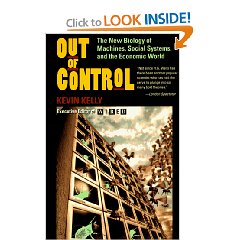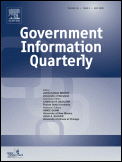
![]() Co-Evolution of Man and Machine,
Co-Evolution of Man and Machine,

![]() Co-Evolution of Man and Machine,
Co-Evolution of Man and Machine,
Technology can make us smart. Or stupid. It can liberate. Or enslave. Norman joins a select group of thinkers advocating a human-centered approach to technology. Inspired (or, more accurately, depressed) by Jerry Mander, he wrote this book to examine the differences between humans and machines, and to establish some ground rules for policy that protected the one and leveraged the other. Norman notes that when technology is not designed from a human-centered point of view, it produces accidents and more often than not the human is blamed. He focuses especially on the distinction between experiential cognition and reflective cognition, and laments that television and entertainment are swamping us with the experiential and not teaching us the reflective. He is concerned that our ever-lengthening chain of technology dependence is forcing us to deal with ever-increasing loads of information at the same time that it weakens our inherent capabilities further. People first, science second, technology as servant.

Comment: This is still one of the best books for someone who wants to think deeply about knowledge. Below are links to some others I recommend.
Our answer to Levy, but an order of magnitude more practical and steeped in some of the best endnotes I've ever enjoyed. Consilience is the “jumping together” of knowledge across boundaries, and the greatest enterprise of the mind. He begins with an example, showing how biology, ethics, social science, and environmental policy must all come together to properly resolve a global environmental issue, but actually do not-the learned individuals are fragmented into four separate communities, and within those communities further fragmented into nationalities and cliques and jobs, and it is our greater loss for we cannot arrive at the best policy without being able to integrate the knowledge across all these boundaries. He emphasizes that the public must be educated and have access to this unified knowledge, not just the policymakers. He poses, and then answers across the book, this question: “What is the relation between science and the humanities, and how is it important to human welfare?” In my own mind, Edward O. Wilson has defined both national and global intelligence writ large, and done so in way that suggests the “virtual intelligence community” is a very practical and achievable vision.
The Future of Life
The Wealth of Networks: How Social Production Transforms Markets and Freedom
The Wealth of Knowledge: Intellectual Capital and the Twenty-first Century Organization
Revolutionary Wealth: How it will be created and how it will change our lives
Powershift: Knowledge, Wealth, and Power at the Edge of the 21st Century
Infinite Wealth: A New World of Collaboration and Abundance in the Knowledge Era
The Age of Missing Information
Forbidden Knowledge: From Prometheus to Pornography
Smart Mobs: The Next Social Revolution
Information Productivity: Assessing Information Management Costs of U. S. Corporations

“SPECIAL FEATURE: Creating a Smart Nation–Strategy, Policy, Intelligence, and Information,” pp. 159-173